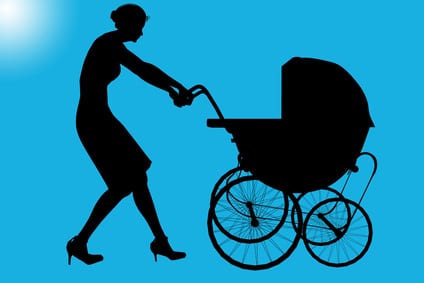Pregnancy after 40 can be an exciting, yet daunting, proposition. People might say you are too old to get pregnant. Once you are pregnant, some whisper that you are too old to be a mother. Focus on your health and ignore your critics. You need to know certain things about being pregnant over 40. Learn the basics, follow up with your doctor, and make informed choices.
Getting Pregnant
Fertility is the first hurdle older women face when they want to become pregnant. You are born with all the eggs you will ever have. Eggs drop in number as you age and the eggs age along with you. Their viability decreases and along with it, your chance of getting pregnant. A woman’s fertility drops off rapidly after the age of 40, according to the Mayo Clinic. Still, some women become pregnant without any fertility treatments.
In-vitro fertilization (IVF) techniques have lower success rates for women over 40. Women who fail to get pregnant with their own eggs have the option of using donor eggs and IVF.
Once You Get Pregnant
Women over 40 have higher risks for miscarriage than 30-year-old women. The rate is around 51 percent for women aged 40 to 44, according to the Mayo Clinic. You cannot determine the viability of an embryo, but you can help yourself by paying close attention to your health before and during your pregnancy. Do not smoke and avoid second-hand smoke. Exercising and eating a healthy diet makes you feel better whether you are pregnant or not. Stress affects you mentally and physically, too. Avoiding stress, or learning how to deal with it is important for any mother-to-be, but especially for mothers over 40, according to the National Infertility Association.
Risks for Baby
Any pregnancy carries inherent risks, and those risks increase if you are over 40. The Mayo Clinic advises that Down syndrome occurs more frequently as do certain other genetic defects. Minimize the risk factors you can control–take prenatal vitamins as prescribed by your doctor. Prenatal vitamins are high in folic acid, iron and calcium. Folic acid is critical in preventing spinal cord and brain defects. Iron bolsters your blood and muscle health; calcium helps build strong bones in you and your baby, according the the Mayo Clinic. Use every opportunity to give your baby the best chance it has to be strong and healthy.
Risks for Mom
Pre-eclampsia, or very high blood pressure, occurs more often in older mothers, according to the Pre-Eclampsia Foundation. The condition does not improve until the pregnancy ends. Gestational (pregnancy-induced) diabetes is also more common for older mothers, and the condition can lead to overly large babies, according to the Mayo Clinic.
Pregnancy puts a strain on a woman’s body. Your heart, lungs and all organs work harder to sustain the life growing inside you. You might feel young for your age, but remember that–at 42–your body has more wear and tear than when you were 25.
The Horizon Ahead
You took care of your health and got pregnant. All the genetic testing turned out normal, and you are past your first trimester. Finally, you can take a deep breath and start feeling the joy that your less-experienced counterparts did from Day 1. Start planning for your baby’s arrival–although you might have been doing that for years. You might have a gray hair or two, but you also have the wisdom and patience that makes a 40-plus mom a great one.





